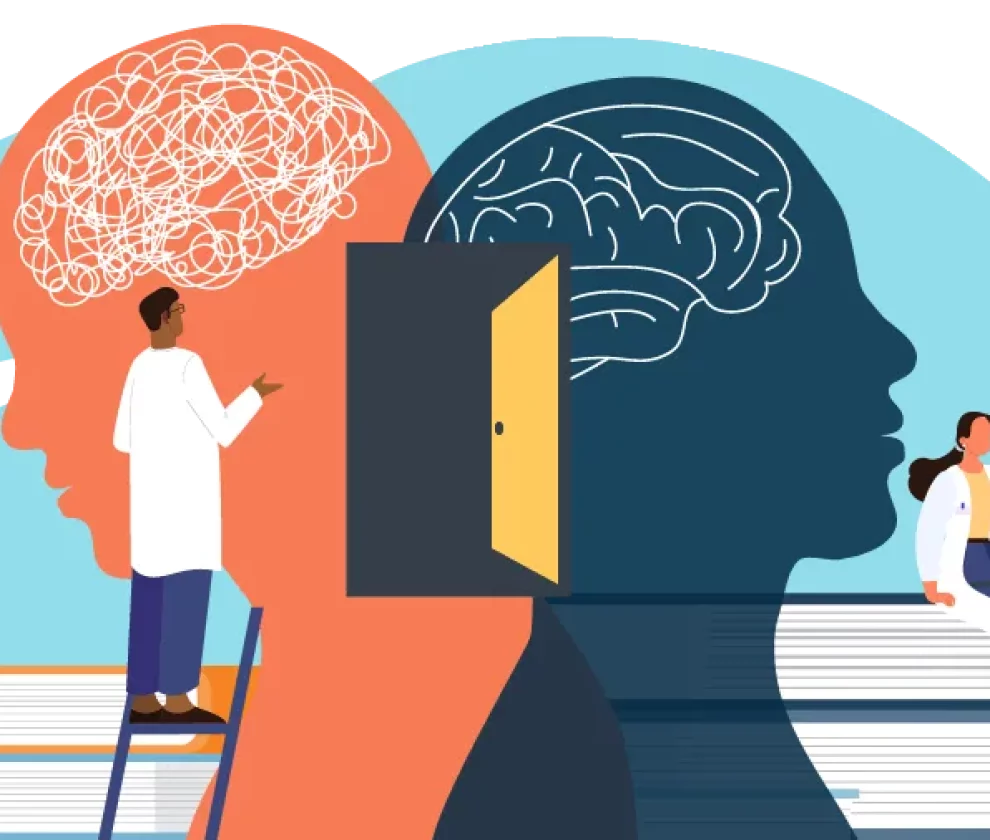Post-traumatic stress disorder (PTSD) is a complex mental health condition that develops in response to a traumatic event. While it is often associated with emotional distress and physical symptoms, its effects on memory recall can be equally significant. Memory loss, particularly related to long-term memory and traumatic experiences, is a common but lesser-discussed symptom of PTSD. In this blog, we’ll explore how the impact of PTSD symptoms cause fragmented memories, why this happens, and what treatment options are available to help individuals regain control over their everyday life.
How PTSD Affects Memory
PTSD symptoms often extend beyond the common symptoms of flashbacks, sleep disturbances, nightmares, and heightened emotional or stress responses. Memory-related challenges, such as difficulty recalling details of a traumatic event or even gaps in long-term memory, are also prevalent. These issues arise due to the way traumatic stress impacts the brain, particularly the hippocampus—a region responsible for processing and storing memories. For some, memory loss can make it harder to manage daily life, deepening feelings of frustration or isolation and affecting your cognitive function.
The Role of Trauma in Memory Loss
Traumatic experiences can overwhelm the brain’s ability to process and store information effectively. During a traumatic event, the brain prioritizes survival over memory encoding, which can disrupt the way memories are formed. This often leads to fragmented or incomplete recollections of the event. In some cases, individuals may unconsciously block out memories as a protective mechanism to shield themselves from emotional pain. While this response may temporarily reduce distress, it can make recovery from PTSD symptoms more challenging in the long term.
Understanding PTSD-Related Memory Loss: Causes and Coping Mechanisms
Posttraumatic stress disorder (PTSD) can have profound effects on memory, often manifesting as memory disturbances that make it difficult for individuals to recall specific details or form new memories. PTSD-related memory loss is a significant risk factor for cognitive decline, as the stress associated with the condition disrupts normal memory formation. These challenges can impact different types of memory, including short-term, long-term, and working memory, which are all crucial for processing and retaining important information in daily life.
Memory difficulties in PTSD patients stem from how the condition affects brain function, particularly in areas responsible for memory formation and recall. The effects of PTSD on the hippocampus—a region critical for processing memories—are well-documented, with chronic stress often leading to structural and functional changes in this area. These changes contribute to the memory disturbances many experience, such as forgetting key aspects of traumatic events or struggling to remember daily tasks.
Does PTSD cause irreversible memory problems? Not necessarily. Early PTSD diagnosis and treatment can mitigate the impact of memory-related challenges. Treatment strategies often include developing coping mechanisms tailored to the individual, helping them manage memory difficulties while addressing the root causes of the mental illness. Cognitive behavioral therapy (CBT) and other trauma-focused interventions can play a vital role in improving memory function and reducing the distress associated with PTSD-related memory loss.
By addressing the effects of PTSD on memory through a combination of professional care and practical strategies, individuals can regain confidence in their ability to navigate daily life and retain important information. This highlights the importance of seeking help early to address both the psychological and cognitive impacts of PTSD effectively.
Symptoms of PTSD and Memory Loss
The symptoms of PTSD often intersect with memory challenges in unique ways. Individuals with PTSD may experience intrusive memories, where fragments of a specific event repeatedly surface without warning. Alternatively, they may struggle with memory gaps, forgetting significant details about the past trauma or other unrelated aspects of their daily life. These symptoms can be disorienting and can have a negative impact on doing everyday activities. Some of these are heightened stress, making it difficult to maintain focus, personal relationships, or a sense of stability. Recognizing these challenges is the first step toward proper treatment and recovery.
Treatment Options for PTSD and Memory Loss
Effective treatment options exist to address both PTSD symptoms and memory loss. Cognitive behavioral therapy (CBT), for instance, is widely used to help individuals reframe harmful thought patterns and address the emotional impact of traumatic experiences. Trauma-focused therapies, such as Eye Movement Desensitization and Reprocessing (EMDR), specifically target the processing of traumatic memories to reduce their emotional intensity. Additionally, mindfulness practices and memory rehabilitation strategies can improve cognitive functioning and reduce the burden of memory-related challenges. A comprehensive, trauma-informed approach is key to promoting healing and long-term recovery.
Living with PTSD: Coping Strategies for Daily Life
Managing PTSD symptoms and memory challenges requires a proactive approach to daily life. Establishing routines, using memory aids like journals or reminders, and prioritizing self-care are all helpful strategies. Building a strong support network—whether through friends, family, or professional therapy—can provide essential encouragement and guidance. Treatment programs, such as those offered at Novu Wellness, are designed to empower individuals to navigate these challenges within a safe, supportive environment. With the right tools and resources, living a fulfilling life with PTSD is entirely possible.
The Science Behind PTSD and Memory Loss
Understanding the connection between PTSD and memory loss requires examining the brain’s response to trauma. During a traumatic event it can disrupt certain areas of the brain, the amygdala, the brain’s fear center, becomes hyperactive, while the hippocampus, responsible for processing and storing memories, may become impaired. This imbalance disrupts the normal encoding and retrieval of memories, leading to fragmented or incomplete recollections. Over time, chronic stress associated with PTSD symptoms can exacerbate these effects, further impairing cognitive functioning and making it harder for individuals to recall or organize memories effectively.
The Importance of a Trauma-Informed Approach
When addressing PTSD and memory loss, a trauma-informed approach is crucial. This perspective recognizes the profound impact of traumatic experiences on a person’s mental, emotional, and physical health. At Novu Wellness, we emphasize creating a safe, empathetic, and supportive environment where individuals feel understood. By considering the full context of a client’s life—past and present—our multidisciplinary team develops personalized treatment plans that prioritize healing and resilience. This holistic approach not only addresses symptoms of PTSD but also fosters long-term recovery and empowerment.
When to Seek Help
If memory loss or other symptoms of PTSD are interfering with your ability to function in daily life and cognitive abilities, it’s essential to seek professional help. Treatment is most effective when started early, and programs like those offered at Novu Wellness provide evidence-based solutions tailored to each individual’s needs. Whether it’s through cognitive behavioral therapy, trauma-focused interventions, or comprehensive care plans, reaching out for support is the first step toward reclaiming your mental health. No matter how overwhelming PTSD may feel, recovery is possible with the right guidance and resources.
Moving Forward with PTSD and Memory Loss
Recovering from PTSD and managing memory impairments is a journey that takes time, patience, and support. It’s important to remember that healing doesn’t follow a straight path—progress may be gradual, and setbacks can happen. However, with the right combination of professional treatment, coping strategies, and support systems, it is possible to rebuild a sense of normalcy and reclaim control over your daily life. Seeking help is not just a step toward recovery; it’s a declaration of your commitment to living a fuller, healthier life.
At Novu Wellness, we understand the complexities of PTSD and its impact on memory function and overall mental health. Our trauma-informed programs are designed to address these challenges with empathy, expertise, and evidence-based care. Whether you’re seeking support for yourself or a loved one, know that help is available, and you don’t have to face this alone.
Take the First Step Toward Healing
If you or someone you care about is experiencing PTSD symptoms or memory loss, reach out to Novu Wellness today for PTSD treatment. Our team of compassionate professionals is here to guide you through every step of the recovery process. Contact us today to learn more about our services and begin your journey toward healing. You deserve a high quality of life where you feel empowered, understood, and supported. Let us help you get there.




